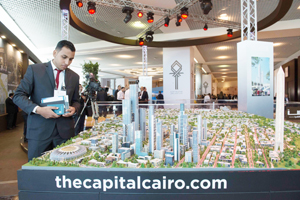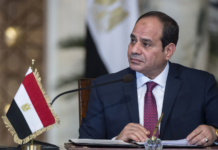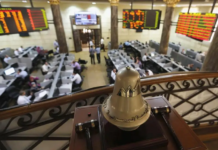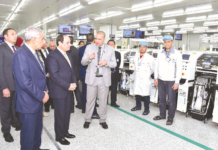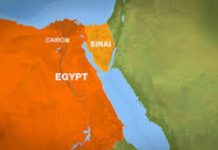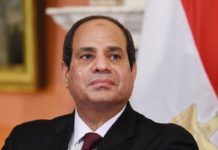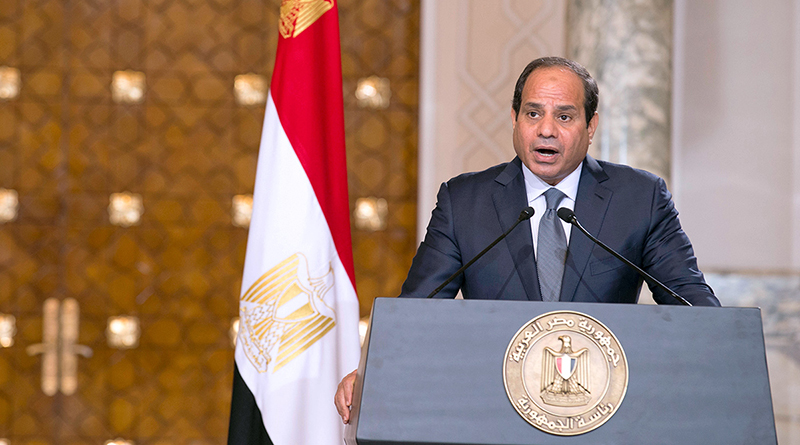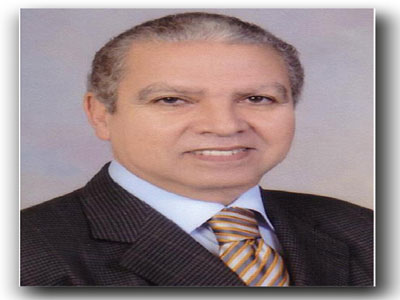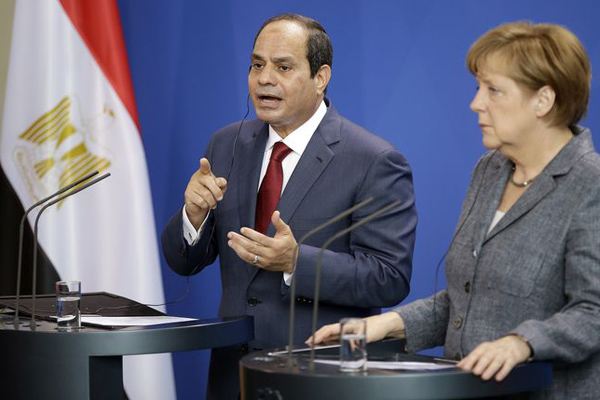
The Egyptian economy has lured various investments during the first year of President Abdel-Fattah Sisi’s term in office. Ahmed Ali follows the latest developments
“I know Egypt and its problems and I can see them as I can see you now. I know the solutions as I see you now. Egypt needs no less than $200 to $300 billion to have any real hope for the 90 million Egyptians really to live, really to work, and to be really happy,” President Abdel-Fattah El-Sisi said in his speech to mark the end of the three-day Sharm El-Sheikh Economic Conference in March.
“We are behind, and those who are late must either speed-walk or run. Even running will not be enough in our case,” he added.
Egypt was emerging as a top destination for growth-hungry foreign capital before its economy was left in tatters owing to political unrest following the revolution in 2011. With a budget deficit more than 11 per cent of output, and a debt-to-GDP ratio near 95 per cent, Egypt’s government was in a dire need of foreign currency and foreign investment.
Consequently, through his programme of economic development, President Sisi has successfully managed to lure much-needed investments by holding the Sharm El-Sheikh economic conference, and by his shuttle tour to various European countries as well as Russia and China.
Meanwhile, most of Egypt’s indicators are pointing in the right direction with foreign direct investment up by nearly 140 per cent year-on-year, according to the Economist. Economic growth rose to an annualised 5.3 per cent in the first half of this fiscal year, compared with 1.2 per cent in the same period the year before. Unemployment, still painfully high at around 13 per cent, is falling. The return of investors may be the most telling sign of renewal.
During the March conference, the government announced huge investment projects, in addition to the signing of 40 agreements and memoranda of understanding in the electricity, energy, housing, telecommunications and oil sectors. In his concluding speech at the conference, Prime Minister Ibrahim Mehleb said, “The initial estimate for the total investments that have been agreed upon is $60 billion, including $18.6 billion on funded projects.”
Mehleb added, “Egypt received $12.5 billion in support from the Gulf states, which will be directed at projects carried out within a year or two; this is in addition to $5.2 billion in loans and funds with the Ministry of International Cooperation.”
Speaking at the UN climate summit in last September in New York, Sisi said: “Our nations suffer from aggravated energy crises at a time when they look to achieve high rates of growth, which requires an expansion of renewable energy projects … to provide energy with the transformation to an economic model that is more environmentally friendly.”
Sisi added: “Based on that, I invite developed countries, financial institutions and the private sector to invest in these projects.”
“Sisi pays great attention to economic issues and this is evidence of his realisation that Egypt’s economic crisis is number one in terms of priorities, economics expert Rasha Abdo says.
“Since there is no development without energy, which could affect the investor in addition to the citizen, Sisi is implementing a well-studied resolution,” Abdo adds.
As a result, a series of energy projects were announced at the economic conference, including deals with German firm Siemens and US-based GE, which “could add 13 gigawatts to Egypt’s electricity grid”, Sisi said during his speech at the March conference.
Oil giant BP called its new $12-billion project “a vote of confidence in Egypt’s investment climate”, while beverage producer Coca-Cola has pledged to spend $500m. in Egypt within the next three years. Majid al-Futtaim, a Dubai-based retail operator, has increased its investments by about the same amount. In April Moody’s, a credit-rating firm, upgraded Egypt’s rating.
Moreover, the government has unveiled plans to build what is being called New Capital Cairo, an administrative and business centre for Egypt, which is to be built from the ground up.
The president recounted his efforts to get contractors to reduce both the cost and the construction time to complete them. “We said no, we can’t wait 10 years for the new capital to be built because by then we would have increased 26 million people at this rate, and time is critical,” he said. The project is now running on a five-year timeline.
This echoes past decisions by Sisi, who pushed for the digging of the New Suez Canal to be completed in one year rather than three years as originally planned. The president suggested that if developed countries want to help Egypt, they should finance their companies in order to allow them to invest in Egypt. “The commitment of Egyptians to pay back is beyond doubt,” he says.
In an attempt to diversify the foreign investments’ funds and options, Sisi has tried to enhance cooperation with difference European countries as well as the BRIC (Brazil, Russia, India and China) nations.
During Sisi’s visit to Russia last August several industrial agreements were signed, in addition to the construction of a Russian Free Zone in Cairo. While on his visit to Cairo last February President Putin said Russia would contribute to building “a whole new nuclear power industry” in Egypt, as the two countries signed a number of agreements after a meeting in Cairo.
The leaders of Russia and Egypt have signed “a memorandum of understanding to build the first nuclear plant in [the northern city of] El-Dabaa,” Sisi told reporters at a news conference at Cairo’s al-Qubba presidential palace.
Russia would contribute not only to the construction of a nuclear power plant, but also staff and scientific research, Putin said. Under the new agreement, Russia’s nuclear agency Rosatom would build two reactors based on Russian technology, according to Rosatom chief Sergey Kirienko.
Moscow and Cairo have agreed a contract for a total of four units of 1200 MW each. The new generation plant, Kirienko said, would comply with ‘post-Fukushima’ safety standards. “We understand the task given by the Egyptian president: to act as quickly as possible. We are ready,” he said.
Besides nuclear cooperation, the two countries have discussed a broad range of international issues, including joint economic and military-technical collabouration, while they also agreed on establishing a free trade zone with the Russian-led Eurasian Economic Union (EEU) and a Russia industrial zone in the Suez Canal area.
Russia and Egypt will make efforts to promote a number of investment projects in various sectors, including the transport, manufacturing and chemical industries. According to Putin there are already 400 Russian companies operating in Egypt, and the two sides have agreed to expand opportunities for small- and medium-sized businesses in Egypt.
Indeed, in May, A 300-businessman delegation headed by the Russian Minister of Trade and Industries, Denis Manturov, visited Cairo to further discuss a number of Russian projects in Cairo in various sectors.
Russian investors are looking to invest in Egypt’s infrastructure and road projects, Egyptian Minister of Supply and Internal Trade Khaled Hanafi announced during the Egyptian-Russian Business Forum in Cairo. Hanafi said his ministry was currently studying developing six ports in the Suez Canal Axis Development project, in cooperation with Russia.
Minister of Transport Hani Dahi also noted during the conference that he was considering developing railways in cooperation with Russia, including an express train connecting the Suez Canal Axis and other governorates.
Hanafi said during the meeting that a Russian firm had offered to form a consortium with Egypt with the aim of investing in the global logistics centre project. The Russian firm will supply Egypt with all the equipment and machinery required for the project.
“The Egyptian economy badly needs huge investments, whether Egyptian, Arab or foreign investments,” economic expert Fakhry al-Fiqi said, adding that this was the only way forward for economic prosperity.
During his visit to China last December, Sisi and Chinese President Xi Jinping decided to elevate the bilateral relationship to a comprehensive strategic partnership between the two countries. In a joint statement signed by Xi and Sisi on establishing the partnership, the two presidents pledged to boost political, economic, military, cultural and technological cooperation along with cooperation on regional and international affairs.
Sisi hailed his Chinese counterpart’s initiative to revive the Silk Road linking China and the Mediterranean Sea, adding that the president highlighted the role of the Suez Canal Axis Development project by reopening the famous trade route.
China, a significant economic partner, is Egypt’s second largest trading partner. Trade between Egypt and China amounted to $10.3bn in 2013, of which $1.9bn were Egyptian exports to China and $8.4bn were imports from China, according to government figures.
The history of modern bilateral relations between the two countries dates back to 1956, when Egypt became the first Arab and African country to recognise the communist government of the People’s Republic of China.
At the same time, during his April European tour that included visits to Cyprus and Spain, Sisi said that these visits aimed at enhancing cooperation between Egypt and the two countries in various fields. A number of bilateral agreements were signed with Spain during the trip. Spain’s investments in Egypt’s gas, cement and railway industries are estimated at some $757m.
Many analysts have praised Sisi’s adoption of a new direction in the country’s foreign policy, saying that Egypt is aiming at achieving a “balanced relationship” with the EU countries.
Concerning Sisi’s recent visit to Germany, according to businessman Ahmed Mashour, Member of the Egyptian Junior Business Association (EJB), it is an opportunity for German companies to invest in Egypt.
The visit saw the signing of four energy-sector agreements costing €8bn with the German multinational Siemens. According to the terms of these agreements, Egypt will obtain 10,000 Megawatts of power, covering one third of its energy needs.
Following his visit to Germany, Sisi held bilateral talks in Budapest with the Hungarian Prime Minister, Viktor Mihaly Orban, to discuss economic cooperation and counter-terrorism and security.
Though the great effort made to attract more investments, much work remains to be done concerning the economic developments. Sisi said: “We are really late, even running is not enough. That’s why in all my conversations with the companies, I tell them we’re in a hurry.”
Egypt still ranks 112th on the World Bank’s ease-of-doing-business index, behind Zambia and Swaziland. The Investment Minister, Ashraf Salman, admits that in order to start a company, investors must obtain permits from 78 different agencies. This can take up to five years. The government has promised to create a one-stop shop for such approvals, although only by the end of next year.



